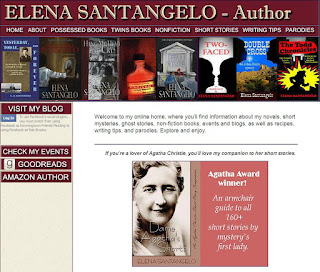 What would writers do without readers? As the old saying goes, “If a
tree falls in the forest and no one is there to hear it fall, did it
really fall?” “If words appear on a page and no one reads them do they
really exist?
What would writers do without readers? As the old saying goes, “If a
tree falls in the forest and no one is there to hear it fall, did it
really fall?” “If words appear on a page and no one reads them do they
really exist?Well, yes. Unlike the trees in the forest, books in libraries all over the world contain the words of thousands of writers. But if no one reads them, what good are they?
Words are a writer’s stock in trade, but many beginning writers seem to think that just the act of writing is enough. To complete the communication process, all writing needs to be read.
It used to be that writers were limited to the printed page. If you wanted more than one person to read your work, you had to get it published. Competition in the publication arena is tough, so beginning writers had to spend much of their time pitching story ideas to editors. And while this is still a big part of the market, there are lots of other possibilities. And as the slogan for Mastercard says, “Master the Possibilities.”
 Besides
print publishing there are lots of other venues where readers can read
your work. However, it’s important to understand what type of reader
you’ll find in each. Don’t go looking to readers to provide criticism,
constructive or otherwise. You should leave that to other writers—people
who know writing.
Besides
print publishing there are lots of other venues where readers can read
your work. However, it’s important to understand what type of reader
you’ll find in each. Don’t go looking to readers to provide criticism,
constructive or otherwise. You should leave that to other writers—people
who know writing. The average reader reads for enjoyment or information. They don’t read to give feedback to the writer. In fact, most people don’t read in detail. Writers, on the other hand, should know how to read like a writer.
So it’s important to know your readers. Let’s say you post something you wrote on Facebook. People generally use Facebook as a quick way to catch up on what’s happening with their friends, as well as people they don’t know—Facebook calls these people “friends,” also. If you post an article or a very short story in the Notes Section of your Facebook page, chances are that very few people will read it. You could post it directly, but even if you do, most people will just skip over it.
 Posting
a piece of your writing on a writing Web site or creating a site of
your own will guarantee that you get the most readers. Blogs are a good
example of this. But readers won’t flock to your site or blog just
because you wrote it. You have to promote it. Now this is where Facebook
can help. By creating a post that includes a link to your article or
short story, readers, many of them accessing Facebook from their
smartphones will probably take the time to go there and read—or at least
skim over—what you wrote. Blogging programs, like Google’s free
Blogger, allow readers to post comments.
Posting
a piece of your writing on a writing Web site or creating a site of
your own will guarantee that you get the most readers. Blogs are a good
example of this. But readers won’t flock to your site or blog just
because you wrote it. You have to promote it. Now this is where Facebook
can help. By creating a post that includes a link to your article or
short story, readers, many of them accessing Facebook from their
smartphones will probably take the time to go there and read—or at least
skim over—what you wrote. Blogging programs, like Google’s free
Blogger, allow readers to post comments.By devoting a little time to promoting yourself and your writing on social media—Facebook, Twitter, LinkedIn, etc.—you’ll be surprised how many readers you can attract from all over the world.
A publisher printed 5,000 copies of a writer’s book, of which only 3,500 sold. That doesn’t necessarily mean that 3,500 readers read the entire book. Some people stop reading after the first chapter. That same writer created a Web site on which he posts articles in his field of interest and now the site gets over 17,000 readers a month. It’s as simple as doing the math. In fact, more people read writing of all kinds online than all the books put together.
So remember, a writer without readers is like a musician without listeners, a teacher without students, a garbage collector without trash. Knowing that someone will be reading what you write will motivate you to write more. Too many beginning writers keep journals in which they're both the writer and reader--the only reader. To be successful as a writer, it's important to write for the reader, not for yourself. And the more readers, the better.
To read more of my articles and book excerpts, please visit my Web site. And to read more articles on freelance writing, grammar, and marketing, go to Writer's Corner.


